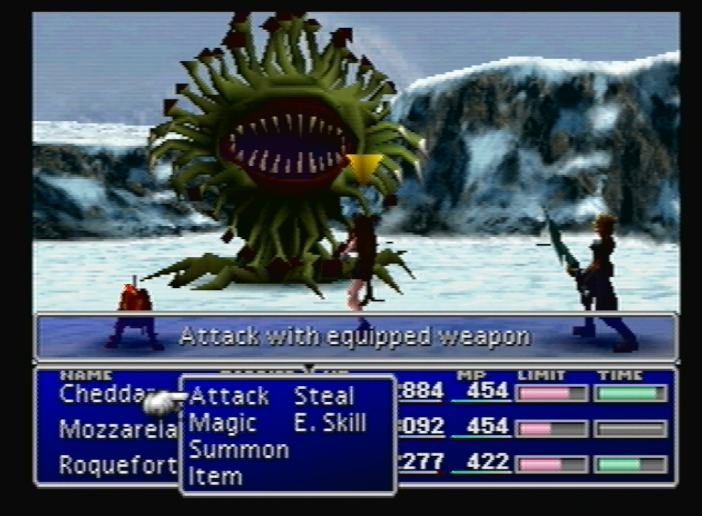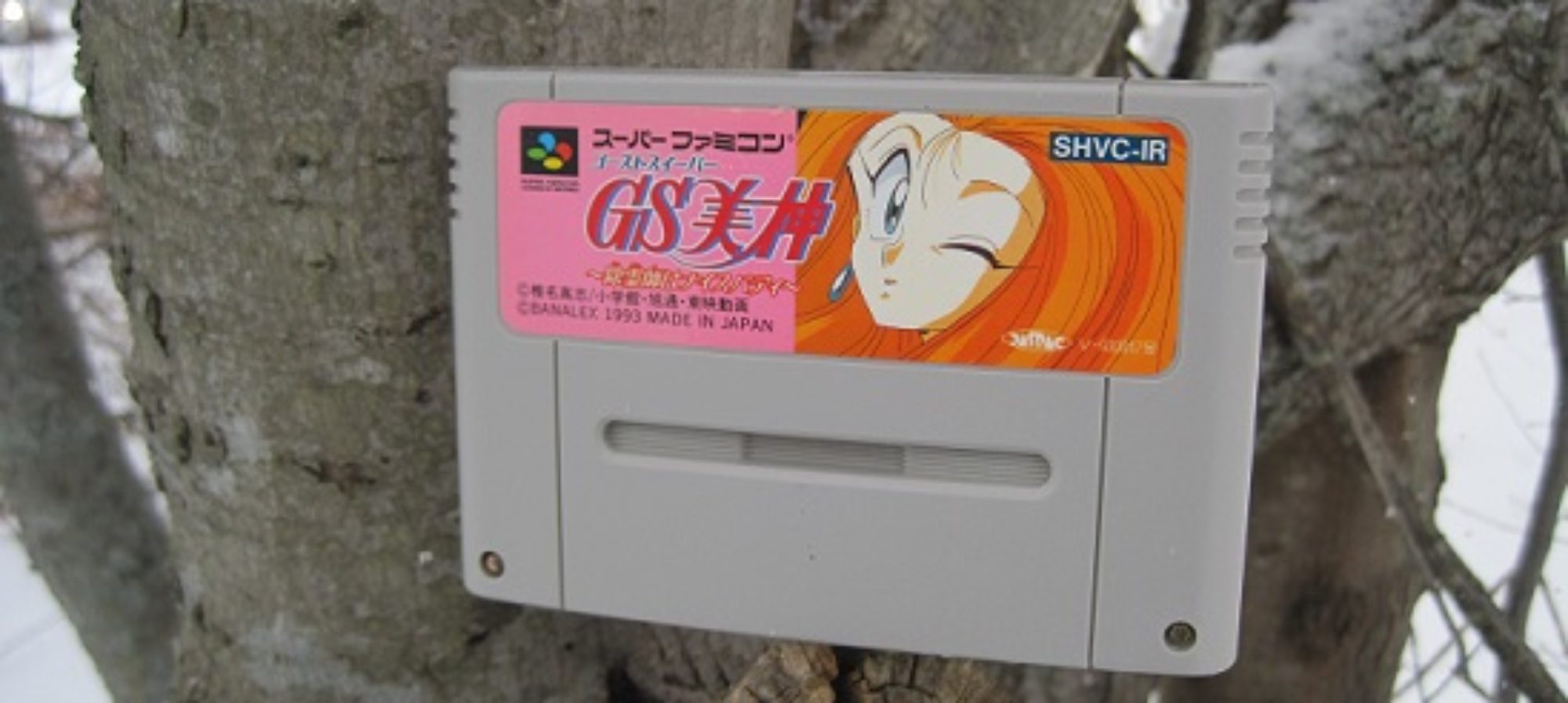There are games with a level of notoriety that tends to inform the conversation years and years after their release. And some of those games, through a series of circumstances, just get skipped over. Within the scope of my interests, the biggest title I hadn’t done an independent playthrough of is Final Fantasy VII. And it took until this year, 2023, for me to sit down with it.

I started with Final Fantasy I on NES and really came into the series with Final Fantasy IV’s SNES release. Final Fantasy is a series that captured my imagination early on, games that became comfort games for me that I could play again and again. Drawing the characters and monsters, making stamps in Mario Paint, recording boss battles on our VCR. The first fan translation I ever played was Final Fantasy V, when my brother took it home from university. I was ready and eager to play anything the series came out with. So how do I miss playing Final Fantasy VII?
In a way, I didn’t strictly miss it. I had a Nintendo 64 instead of a PlayStation growing up and so I didn’t own it at the time. However I also played a lot of PlayStation at friends’ house and one in particular also liked RPGs. I remember coming to school and he was telling me in exhaustive detail about Odin’s summon animation and how it was so cool and how I “wouldn’t be any good at Final Fantasy VII because it’s not on Super anymore.” But I saw a lot of FFVII at his house, and of course you get shown a lot of key moments.
Years later, my older brother also played through Final Fantasy VII, and during a stay of a few weeks at his place I again saw a lot of key moments in the game. It’s funny that he happened to be playing this because when he brought FFV back from university I kind of ruined the momentum of that game for him because I really got tucked in and played the hell out of it until I passed his progress and finished it. I’m the same way, for RPGs seeing the playthrough and key moments is anathema to my ability to play them and enjoy them.
With my interest stymied by these factors and prices in the wild for FFVII typically inflated for a long while, you just kind of push it back further and further until you just aren’t thinking about it. And there’s always something new and unexplored to chase. However, this year I started playing through the Pixel Remasters and starting thinking more and more about how I haven’t rolled VII and it got under my skin. So how did I get on with VII?
The short answer is that yeah, I liked it a lot.
FFVII is an Active Time Battle JRPG much like the three SNES titles before it, there’s still a level of familiarity here. Where it differs is the Materia system which you can slot into your armour and weapons to provide characters with stat modifiers, abilities, and spells. Materia can be leveled up to provide stronger or modified effects, and mastered to duplicate them so you can make use of multiple copies. While I normally prefer a more dedicated Job system, Materia let me create roles for the characters I wanted to use in my party. It’s a very powerful and flexible system and if you spend some time tweaking it you’ll make an already fairly straightforward game easier still.
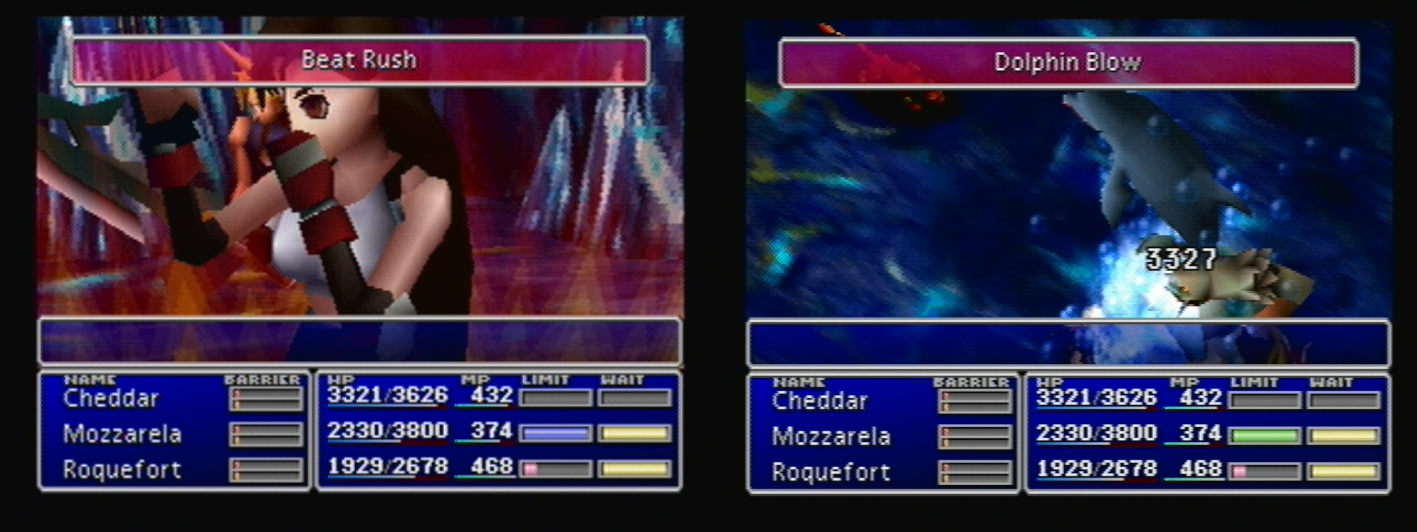
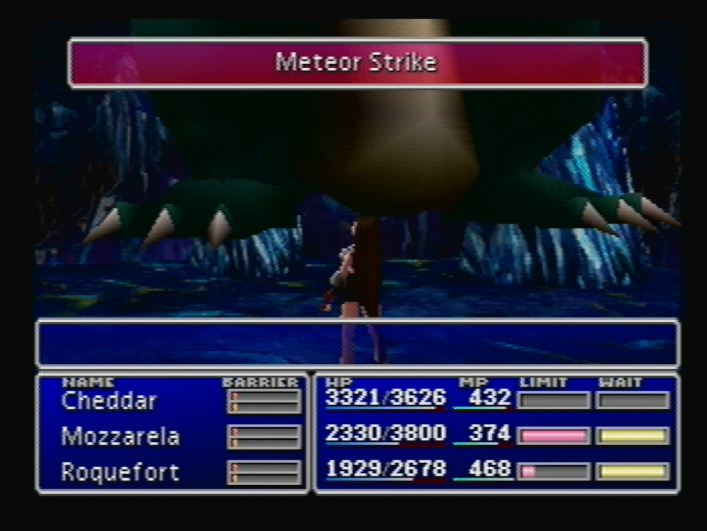
It’s that level of familiarity and the potency of the Materia that makes Final Fantasy VII a pretty chilled out and easier play. I didn’t find myself needing to grind experience or Materia levels and I didn’t need to adjust my Materia to get through the story. Before the postgame I didn’t even really scrutinize what Materia I had linked or what Materia was superfluous to the build I was trying to accomplish. There are a lot of powerful Materia you can get with the Gold Chocobo – some of these felt like overkill at the endgame – especially Knights of the Round – but is that much different from say… earning multiple Economizers in Final Fantasy VI? The exceptions to the rule were Emerald Weapon and Ruby Weapon, where I did carefully consider Materia and gear.
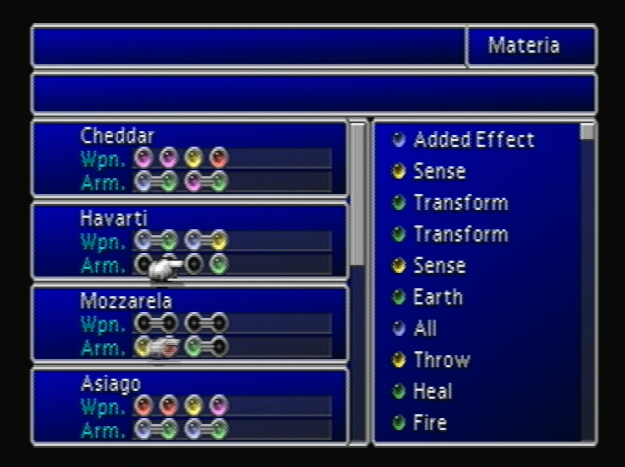
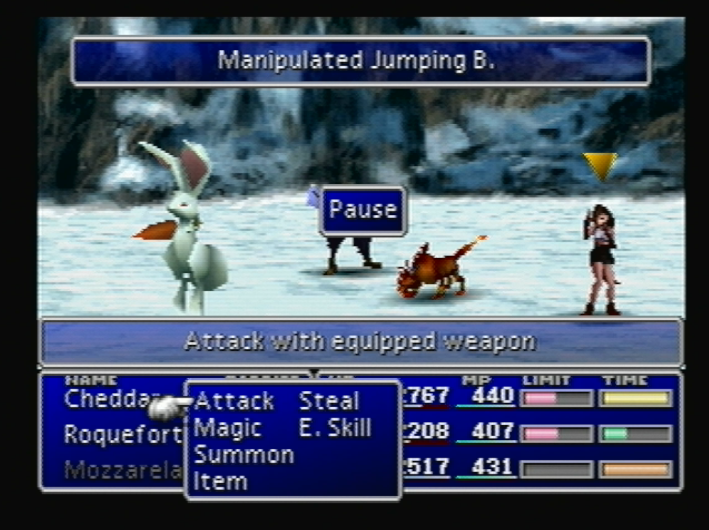
Final Fantasy VII has some of the best known spoilers in video games, it’s difficult to avoid any of that over the last 25 years. Despite knowing the gist of the story and having seen those spoilers many times before I found myself invested. Cloud is a much more nuanced character than the discussion sometimes lets on. I’ve seen Tifa described as having little character, but she has some of the most earnest character moments in the game. Barret’s moments in his home town, or coming to terms with the collateral damage and death AVALANCHE has caused. Red XIII (Nanaki) being one of the most interesting nonhuman characters in the series.
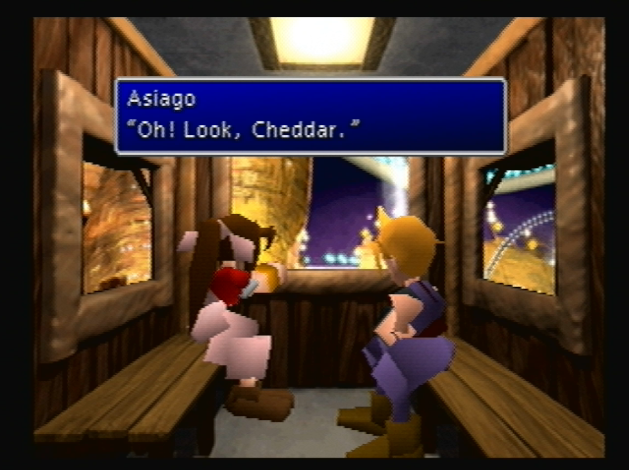
The initial climb through the guts of Midgar where the Shinra were a more omnipresent factor they felt like a substantial threat and some of the acts they perpetrated set the stakes well. I liked the Turks as characters but I never felt threatened fighting them, or concerned when they showed up. On the other hand I was more interested in how the JENOVA/Sephiroth situation unfolded than expected and as a scattered observer I didn’t absorb just how vile Hojo was.
I actually really liked the Lifestream and the nature of the Planet in FFVII, it provides an interesting backdrop to the events playing out in front of us, gives context to many of the major plot points that without this system as some kind of planetary autonomy don’t have the same gravity. There’s definitely themes about ecology and climate and class divide and corporate greed in VII, there is political allegory to the plot. Sometimes it’s a little hamfisted with the base at Junon being built over and polluting an old fishing village without moving them first, but this very obvious divide between the Shinra and those they perceive as beneath them is really a continued example of what we’ve seen before. Where the shit trickles down from the Midgar plates to the slums, or the garish Gold Saucer mocks the ruins of Corel.
I think even more essential than showing Shinra’s greed is that you can see examples of people surviving or thriving even when underneath. The shit might trickle down, but the shanty towns in the Midgar Slums taken from reclaimed junk falling from the plates above – they’re some of the most effective world building in the game. Circumstances are rough, some people will thrive and others will falter. But enough people try to find a way, the folks Under Junon persist in their village and try to maintain an association with the ocean. The prisoners at Corel living beneath the Saucer are also trying to make due, though their trajectory differs from Junon. The reliance on Mako reactors and Shinra funding seen throughout the game, different faces of the same coin.
Perhaps FFVII suffered from translation or more likely from the development cycle but some things feel like they really could have been fleshed out more. Sometimes threads felt like they ended abruptly, or changes of heart happened without enough development. Some of this might make more sense if I played through again favouring other characters – I’m sure I missed a lot of scenes and dialogue not knowing who would be the best contextually to have in my party at each stop.
FFVII was a game pushed on its presentation, especially cutscenes. It’s also been a source of criticism in the years beyond its released, the character models used in location and overworld maps in particular. They’re definitely low poly and show their age, but they’re not that much different from the overworld sprites the 2D games would use separate from battle sprites. But they convey action and emotion with their range of motion and expression. Taking an aggressive stance, or glowering, or even Red XIII putting his paws up on a console. I think moreso than polygon count the biggest issue is that they clash with the tone of the prerendered backgrounds, there’s a lot of contrast there.
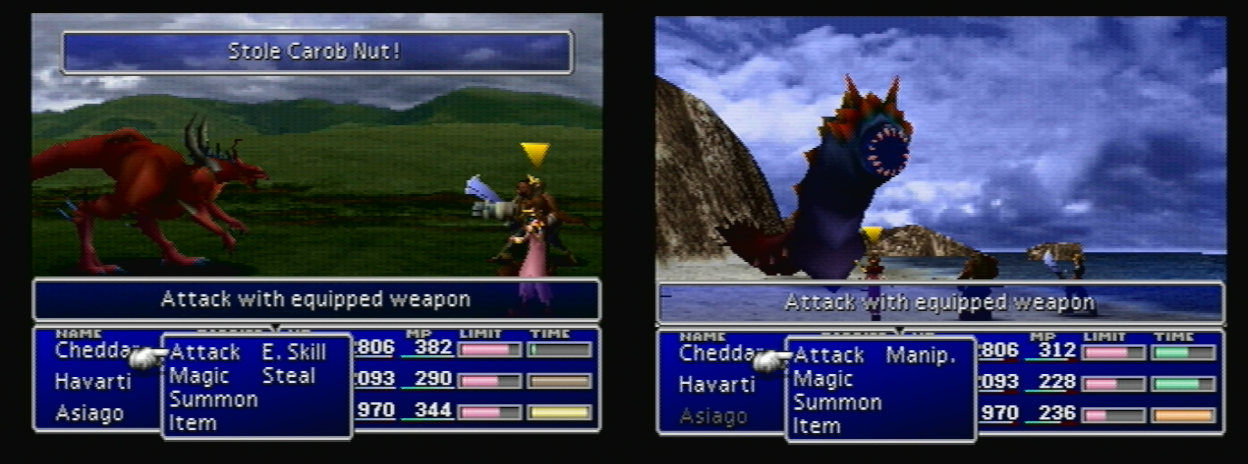
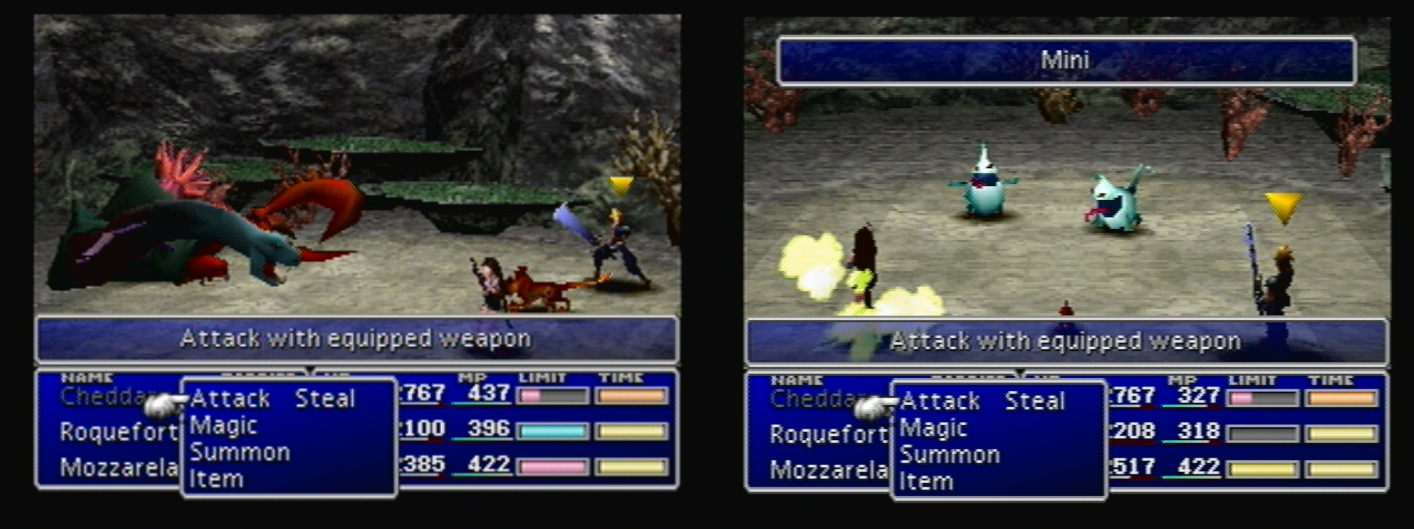
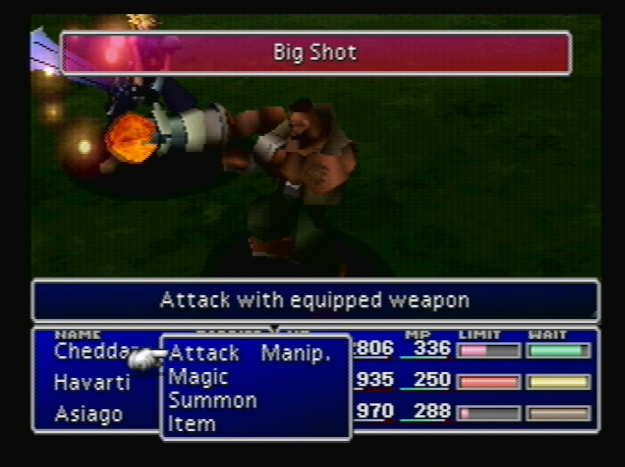
That said, I like the prerendered backgrounds. In terms of environmental storytelling and atmosphere this game performs really well – again, Midgar especially.
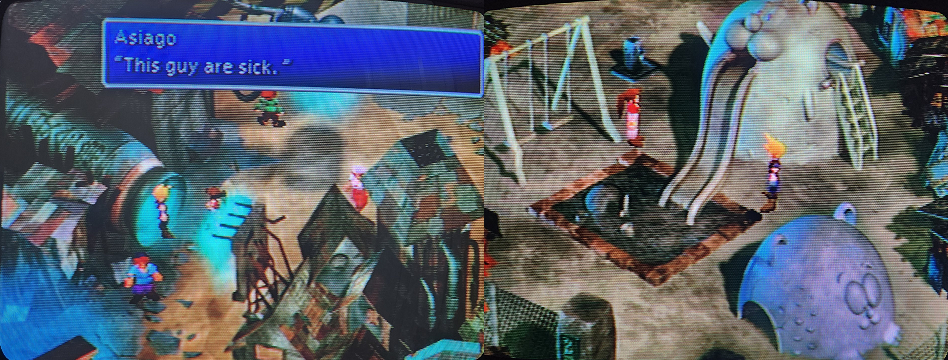
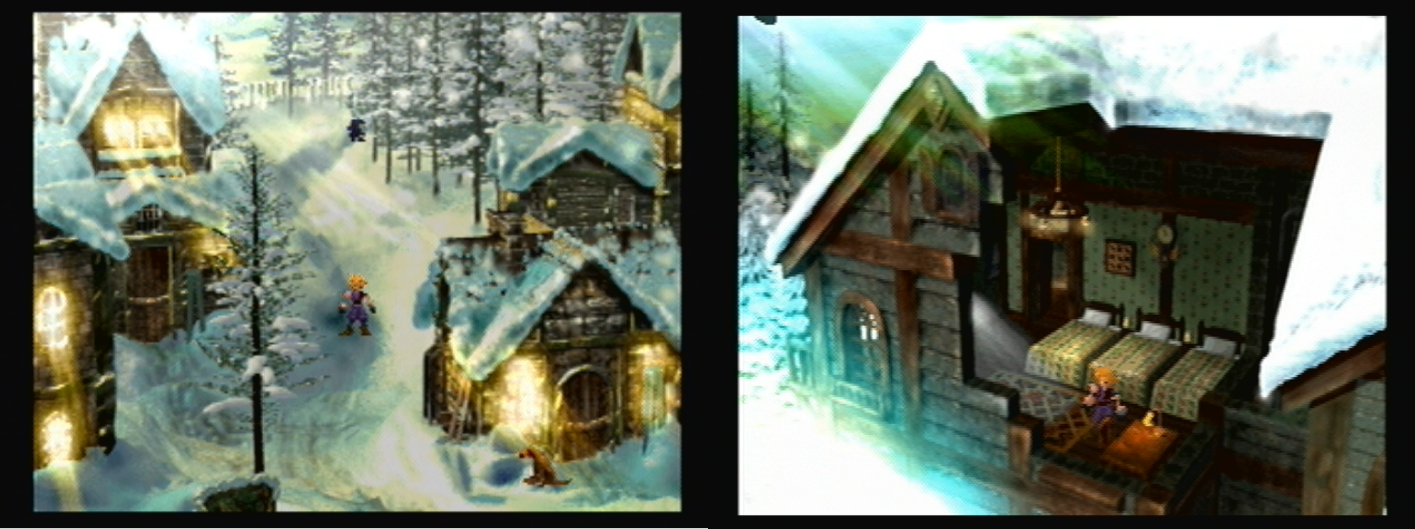
So I can’t say the overworld polygonal graphics are great, though the battle scenes are better. Each character is more detailed and the enemy designs are allowed to go wild.
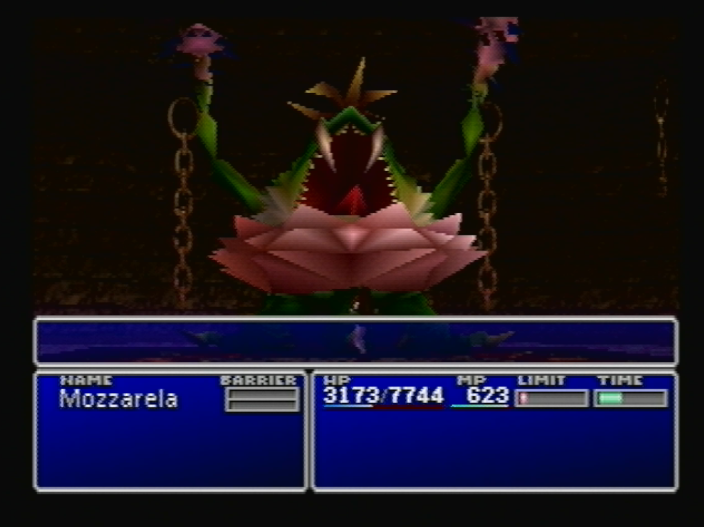
Final Fantasy VII is something that has undeniably entered an important role in the canon of games history and became part of the zeitgeist of JRPGs. It has that level of notoriety, for better or worse, and sometimes the notoriety becomes the discussion instead of the game. And I can admit that there are ideas I held about this game as a spectator decades ago. But I never held animosity towards FFVII, there was just something else to pursue before I played the game I thought I had already seen.
I think to the moment where you leave Midgar and finally get to move around the overworld. It was late night on the weekend, at the end of a long session I had to make up for shorter sessions throughout the week. I was nodding off in my chair, bleary eyed, yet trying to see what the chunk of overworld opened up to me had to offer. As much as I liked the intro, and as tired as I was after the week, I wanted to push on and explore the major change of scenery the game had offered me.
And that reminded me of how we used to play games back when Final Fantasy VII was new. When we would stay up the entire night fueled by Ketchup Doritios and Vanilla Coke playing video games just because it was something we could do. Renting a game and trying it crush it in a single night. Seeing something of interest in a magazine and then beng deadset to get there before morning. I remember a friend of mine read online that you could get Cloud as a Guardian Force in Final Fantasy VIII and we spent the whole night trying to do that even though he wasn’t going to find Cloud.
I realized I was having a serious nostalgia trip playing Final Fantasy VII, not for the game but for the time. The nostalgia isn’t a replacement for the game’s own qualities, but it’s definitely a strong sensation that can’t help but make me introspective. When I think about how I played games back then and the possible grind in Final Fantasy VII – especially mastering Materia and birthing new copies of them, I think I would have gotten deeply entrenched. So if I had any sour grapes about FFVII as a kid it was the usual qualms of owning a Nintendo 64 and the games I was used to playing were being released on PlayStation. I had one RPG I really liked in Ogre Battle 64, but the void was felt. I played PS1 RPGs at friends’ that I still haven’t pursued all of them years later.

No, to be honest I liked the Chocobo races and the Battle Square. Another instance of embracing the grind late at night.
It’s difficult to get invested in a game’s twists and turns when they’ve been talked about at great length before. Some of the issues I have with the story and pacing of character plots might just be informed by games that have come after VII. It would be disingenuous to say that the span of time has made no difference, even if one of my strongest reasons for enjoying my time with FFVII is that yes – this is what I liked playing back then. I think the most personally unfortunate factor for me then is that I never got to play Final Fantasy VII blind.
I think this is a good game. I like other Final Fantasy titles more than it, other 3D titles more than it. I like it more than some other titles. Final Fantasy ranking gets taken with a lot of fervor and salt but I’m going to say I enjoyed my time with FFVII and I’m going to play it again. And now I’m wondering what the Remake changes and expands on things – you don’t need to tell me because I am going to see for myself. And moreover, my interest in playing the mainline entries I haven’t is starting to be rekindled.
And that’s really it. Depending on when I played this game for myself, my reception would have been higher or lower, though I wouldn’t have disliked it. Onward to the next.
